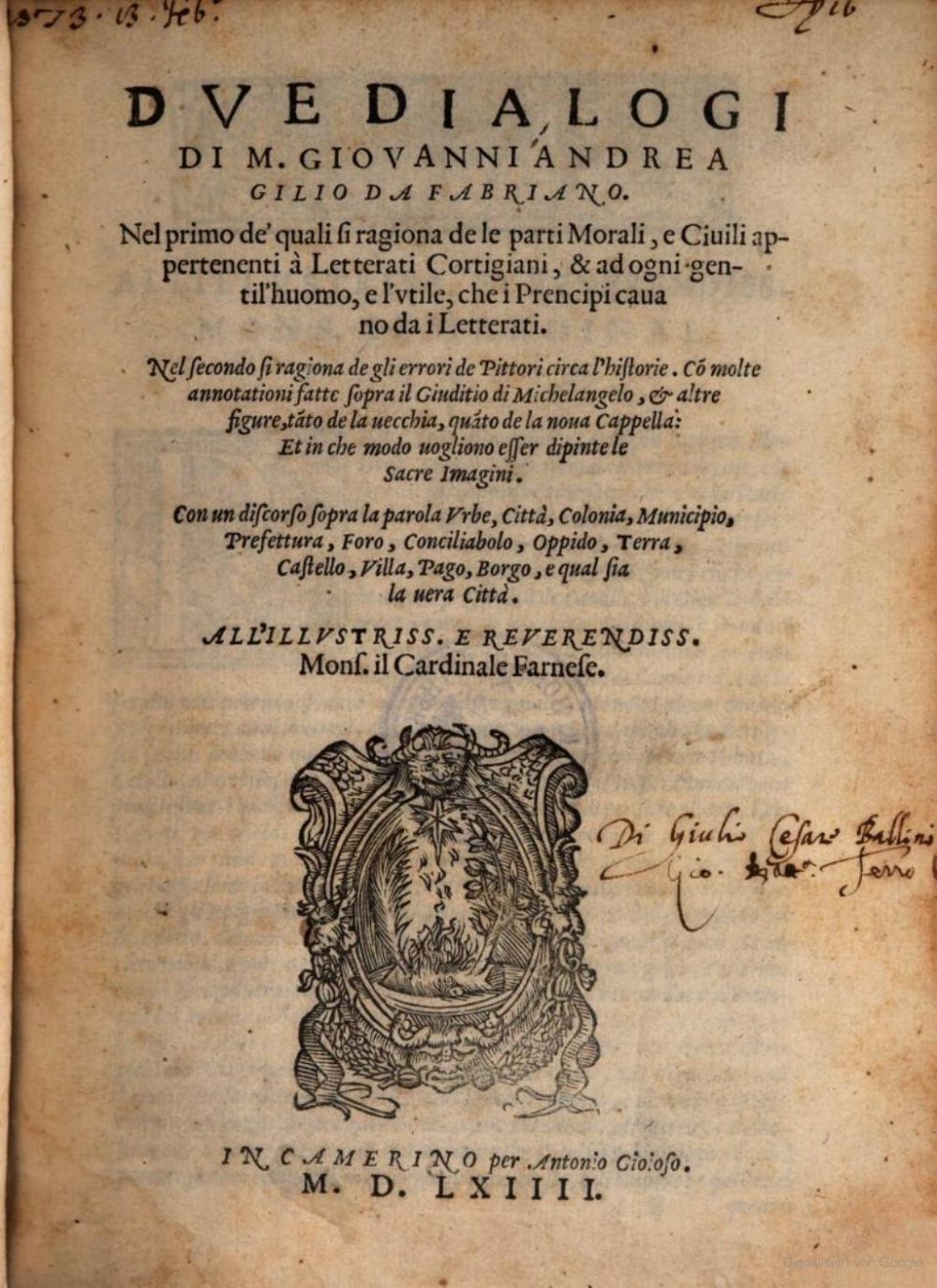
© ÖNB ABO Projekt/in Kooperation mit Google, Sig. 74.E.84 ALT PRUNK
The subject of the passage is the inadequate training of contemporary artists in comparison to antiquity, to which the participants attribute the errors in art. They cite ancient artists, such as Eupompus of Sicyon, as a positive reference.
“‘[…] Not long after came Timagoras, Polygnotus, Parrhasius, Zeuxis, Apelles, and other famous painters, who were all free men and noble, educated, and resourceful, and they did not make mistakes (as most of ours do today) when they painted histories, because they had rules of proportion, line, and perspective; indeed, Eupompus of Sicyon said that no one could be a good painter unless he was also good at geometry, arithmetic, and poetry. So all these men strove acquire the skills appropriate to their art, in order to become perfect artists’.
M. Troilo said: ‘You have spoken well and, given the very powerful reasons you have adduced, I cannot imagine how an ignorant person could be a good artist, because he knows only what he has to do but does not know in what way nor by what method he has to do it. How could anyone who does not know what poetry is, or what fables are, be a good poetic painter? For Simonides said the painting was silent poetry and poetry was spoken painting’.
‘And I’, added M. Francesco, ‘would further say that he needs to know the histories, so that when he has to paint them he knows what is required. So it happens that paintings made in our time of for the most part poorly conceived, for they lack all four of the year above stated qualities. It is not surprising that the works are imperfect when the artists are ignorant’.”
“‘[…] Non molto dopo vennero Timagora, Polignoto, Parrasio, Zeusi, Apelle e gli altri famosi, i quali furono tutti liberi e nobili, dotti et ingeniosi, e non erravano (come la maggior parte de’ nostri fanno) nell’istorie, perché avevano le regole de le misure, de le linee e de le prospettive; conciossia che Eupompo Sicionio diceva nissuno poter essere buon pittore, se non era buon geometra, buono aritmetico e buon poeta. Però tutti si sforzavano avere le parti convenevoli a l’arte per essere perfetto artefice’.
Disse M. Troilo: ‘Avete benissimo discorso e, stando queste efficaci ragioni che voi raccontateavete, non so imaginare come uno ignorante possa esser buono artefice; perché solo sa quello c’ha a fare, ma non sa in che modo né con qual ordine. Come può esser buon poetico pittore uno, che non sa che sia poesia, né che sieno favole? Però diceva Simonide che la pittura era una poesia senza lingua, e la poesia una pittura con la lingua’.
‘Et io, soggiunse M. Francesco, aggiungerei che gli fosse necessario anco sapere l’istorie, perché, bisognando dipin gerle, sappia come esser vogliono. Quindi aviene che le pitture de’ nostri tempi per la maggior parte sono male intese, perché si mancano di tutt’e quattro le sopradette qualità. Non è dunque maraviglia che sieno imperfette l’opere, essendo ignoranti gli artefici’.”
Gilio 2018, 99-100, n.41-45;



